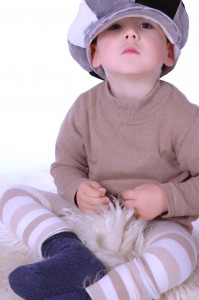 The University of Concordia reports that even in infancy humans can delineate between credible and non-credible sources. The study, published in the journal Infant Behavior and Development, examined a group of 60 infants.
The University of Concordia reports that even in infancy humans can delineate between credible and non-credible sources. The study, published in the journal Infant Behavior and Development, examined a group of 60 infants.
“This [study] shows infants will imitate behavior from a reliable adult,” says second author Ivy Brooker, “In contrast, the same behavior performed by an unreliable adult is interpreted as irrational or inefficient, therefore not worth imitating.”
The babies were divided in two groups; with reliable or unreliable testers. To determine the reliability of experimenters they looked into a container with a reaction of excitement. Then the infants were invited to discover if the container actually had a toy in it or was empty.
The follow up experiment then had the experimenter use their forehead in lieu of their hands to turn on a light. The researchers recorded whether the infants would imitate the experimenter. The study findings, only 34% of infants of unreliable testers followed the strange assignment.
“Like older children, infants keep track of an individual’s history of being accurate or inaccurate and use this information to guide their subsequent learning,” says senior researcher Diane Poulin-Dubois.